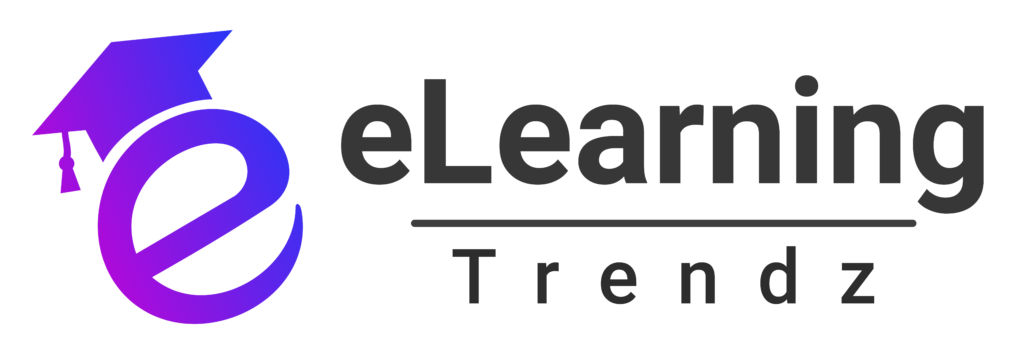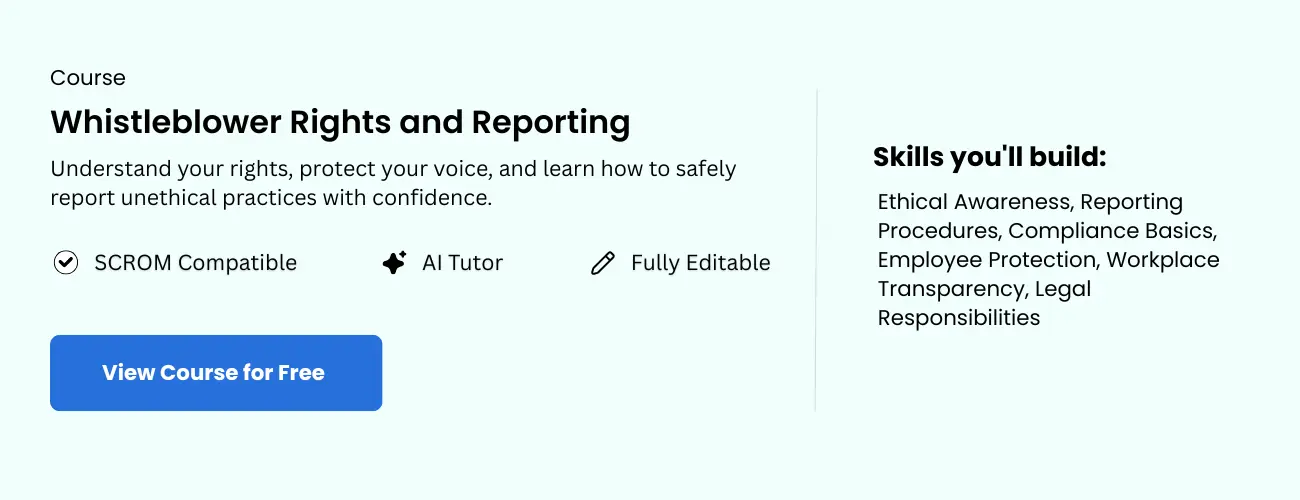This is where whistleblowing becomes essential. It empowers employees and stakeholders to speak up when they witness wrongdoing, helping organizations address issues before they escalate into legal, financial, or reputational damage. Yet many employees hesitate to report concerns because they fear retaliation, lack awareness of reporting channels, or simply don’t understand what counts as misconduct.
This is why whistleblower training is more important than ever—it ensures that individuals know their rights, the process of raising concerns, and the protection mechanisms in place. In this blog, we explore what whistleblowing really means and why training plays a critical role in strengthening a culture of compliance.
What Is Whistleblowing?
Whistleblowing refers to the act of reporting unethical, illegal, or unsafe behavior occurring within an organization. A whistleblower is typically someone from inside the company—an employee, contractor, vendor, or partner—who notices wrongdoing and decides to report it either internally or externally to the appropriate authorities.
Misconduct can take many forms, including fraud, bribery, discrimination, harassment, safety violations, data breaches, environmental harm, financial mismanagement, or non-compliance with regulatory standards. The main purpose of whistleblowing is not to accuse individuals but to safeguard the organization, its people, and the public.
Effective whistleblowing systems ensure that individuals can raise concerns confidentially and safely without fear of retaliation. These systems act as early-warning mechanisms that help organizations identify and resolve issues before they become costly crises.
Types of Whistleblowing
Whistleblowing can be classified into two main categories based on where the report is made:
Internal Whistleblowing
This involves reporting concerns within the organization using established channels such as hotlines, supervisors, compliance officers, or anonymous reporting tools. Internal whistleblowing is often the first step because it allows the organization to investigate and address issues before external bodies intervene.
External Whistleblowing
When internal reporting fails or when the issue involves significant public interest, whistleblowers may choose to report to regulatory bodies, law enforcement agencies, the media, or external whistleblower protection agencies. External whistleblowing is typically used when internal mechanisms are ineffective, biased, or untrustworthy.
Why Whistleblowing Matters
Whistleblowing has become a vital component of corporate governance. Organizations that encourage employees to speak up are more likely to identify misconduct early, promote ethical behavior, and build trust among stakeholders. It helps prevent scandals that can lead to severe financial penalties, reputational harm,
employee turnover, and loss of customer confidence.
Regulators around the world have strengthened whistleblower protection laws, recognizing that whistleblowers help uncover corruption and protect public interest. From GDPR and SEC whistleblower rules to ISO 37002 guidelines, global frameworks now require organizations to create safe, accessible, and reliable reporting channels.
Why Whistleblower Training Is Important
While having a whistleblowing policy or hotline is essential, it is not enough on its own. Training ensures that employees understand how to use these systems, what constitutes a reportable concern, and how they will be protected throughout the process. Without proper training, even the best whistleblowing systems are ineffective.
1. Builds Awareness and Understanding
Many employees are unsure about what counts as misconduct or whether their observation is significant enough to report. Training clarifies the types of behaviors that should be reported—such as harassment, fraud, safety risks, or conflicts of interest—so employees can confidently take action.
2. Reduces Fear and Hesitation
One of the biggest barriers to whistleblowing is fear—fear of retaliation, job loss, or being labeled a troublemaker.
Training reassures employees by explaining anti-retaliation protections, confidentiality measures, and the support available to whistleblowers. When people feel safe, they are more likely to come forward.
3. Ensures Consistent Reporting Processes
A well-trained workforce knows how to report concerns correctly and responsibly. Training guides individuals through the steps—whom to contact, what information to provide, and how investigations are conducted—ensuring a smooth and efficient reporting process. This consistency allows organizations to respond quickly and fairly.
4. Strengthens Ethical Culture
Whistleblower training promotes a culture of openness and accountability. When employees understand that the organization values honesty and transparency, they are more likely to speak up without fear. This leads to a healthier work environment where issues are addressed early, reducing long-term risks.
5. Supports Legal and Regulatory Compliance
Many industries such as finance, healthcare, manufacturing, and technology are required by law to maintain whistleblower systems. Training ensures that organizations remain compliant with regulations, avoiding penalties and legal consequences. It also prepares employees to handle sensitive information responsibly.
Must Read: What happens if a Whistleblower is wrong?
The Role of Leadership in Whistleblower Training
Training is most effective when leadership actively supports it. Employees need to see that top management genuinely encourages transparency and ethical behavior. When leaders communicate clearly, respond quickly to reports, and ensure fair investigations, it signals that whistleblowing is taken seriously.
Leaders who champion whistleblower training help build trust across the organization. Their involvement shows that speaking up is valued not punished making it easier for employees to come forward without fear or doubt.
The Impact of Effective Whistleblower Training
When whistleblower training is implemented properly, organizations experience numerous positive outcomes. Fraud is detected earlier, workplace discrimination decreases, safety improves, and compliance risks are minimized. Employees feel heard and supported, leading to improved morale and stronger loyalty.
Ultimately, whistleblower training is an investment in long-term organizational health. It empowers employees, protects the company, and creates a workplace culture grounded in integrity and responsibility.
Conclusion
Whistleblowing is far more than reporting misconduct it is a powerful mechanism that protects organizations from hidden risks and fosters ethical growth. But whistleblowing can only succeed when employees understand their rights, trust the reporting system, and feel safe to speak up.
This is where whistleblower training for employees becomes essential. It bridges the knowledge gap, removes fear, ensures compliance, and strengthens accountability across the organization. In a world where transparency is the foundation of trust, effective training is not optional it is a necessity.















